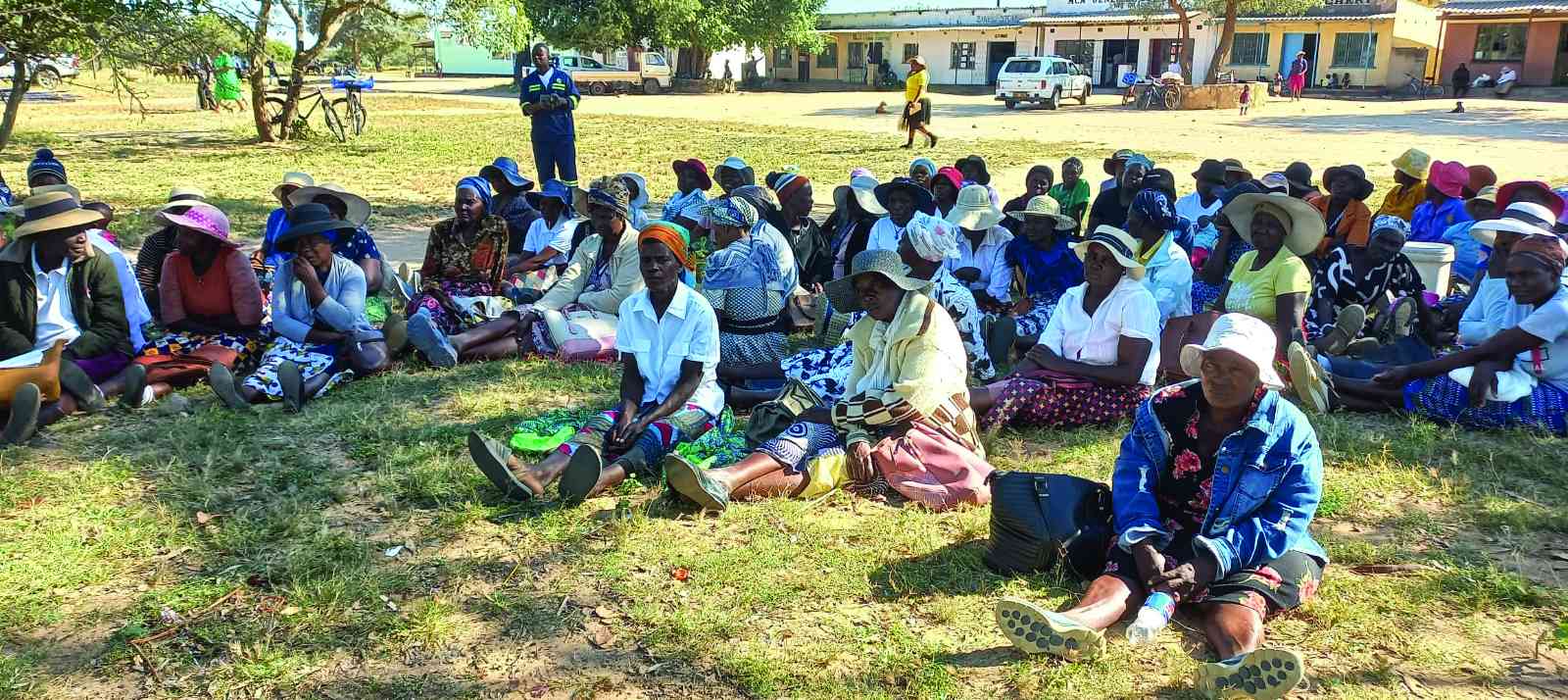
THE National Aids Council (NAC) and the local traditional leadership have embarked on a journey to the past in a promising noble battle against the HIV and Aids scourge and child marriages.
The same journey has also filled a void left when United States President Donald Trump abruptly cut donor assistance, disabling non-governmental organisations (NGOs) previously active in HIV and Aids work, family self-help schemes and girl child empowerment networks.
Most chiefs agree that if society reverts to cultural norms, several diseases including HIV and Aids resulting from modern behaviours will be eradicated in Zimbabwe aiming to be free from the HIV and Aids scourge by 2030.
Themes Not In My Village and Sista to Sista have been created for dialogue among villagers who openly discuss the ills of child marriages and stigmas surrounding HIV and Aids and related topics.
Chiefs, headmen, kraalheads and other village leaders are at the warfront where NAC provides logistical and material support.
The war, fast gathering speed, has spread to other fronts roping in the Health and Child Care ministry to roll out mobile clinics in remote areas where the old and those living with disabilities could no longer access medical care once provided by the NGOs.
After his February re-entry into White House, Trump eliminated about 90% of the US Agency for International Development’s (USAid) foreign aid contracts and US$60 billion in overall US assistance around the world affecting humanitarian help abroad.
Zimbabwe, with about 1,5 million people living with HIV and Aids and many third world countries that benefited from USAid, were left to combat diseases in areas once covered by NGOs.
- Govt justifies clampdown on NGOs
- Crackdown on NGOs derails re-engagement efforts
- Go to hell, Zanu PF tells US, NGOs
- Zim wins bid to host ICASA 2023
Keep Reading
NAC, a parastatal established through a 1999 Act of Parliament to co-ordinate and facilitate the national multi-sectoral response to HIV and Aids, and funded through the 3% Aids Levy from tax payers, drew a plan to reach out to the needy through their traditional leaders.
NAC arranges gatherings in communal areas far from health centres and ropes in the Health and Child Care ministry to bring different types of services to the villagers’ doorsteps, something that has had a monumental effect in Matabeleland South province.
Apart from health services, the gatherings are keeping villagers in sync with developmental projects in their areas while leaders get an opportunity to update their subjects on current affairs in their area.
A three-day media tour for Gwanda and Insiza, where gold mining has spurred early sexual activity among the youths, mostly school dropouts, showed that the NAC facilitated mobile clinics were timeous.
Journalists witnessed relieved villagers collect anti-retrovial supplies, some getting HIV tests, counselling, attention to hypertension, prostate cancer tests and treatments, tests for tuberculosis and other respiratory diseases.
At the sidelines of these gatherings, villagers update their leaderships of developments in their respective areas in healthy no holds barred meetings where several societal problems are addressed and solutions sought.
NAC provincial project co-ordinator Wilfred Ngwenya said they were targeting needy and hotspot areas, mostly in rural areas, guided by the national census figures.
Ngwenya said besides mobile HIV and Aids clinics, they were rolling out the Sista to Sista, Not in My Village while Community Antiretroviral Refill Groups, Peer Led Model and Male Engagement programme are part of the roll out.
To date, mobile clinics, the first in the country, have visited Mtshabezi under Chief Mathema and Thungulula village under Chief Mafu, where community members are getting free HIV and Aids screening, maternal, eye and counselling services, among others.
Journalists also attended meetings held by Chief Sibasa in Insiza, where villagers posed several questions, including some constitutional topics like how people accused of rape of minors were released on bail.
Some of the debates also touched on alcoholism and the lack of adherence to operational times of beer outlets that have reduced the countryside into nightclubs.
“Crime is on the increase in villages and our population is diminishing because men are wasting time in beer outlets and not finding time to make children,” Chief Mathema said.
Chief Sibasa said villagers should monitor each other and report to him parents marrying out their children who are aged below 18.
“I will fine the families presiding over such marriages and impose fines of more than one beast. We cannot have our children being married out young,” said Chief Sibasa, who is part of a group of chiefs in Matabeleland South who have endorsed the Not in My Village theme.
Beitbridge district leads in teen pregnancies in Matabeleland South, with 1 279 out of its 16 626 girls aged between 10 and 19 having fallen pregnant in 2024, when Insiza in the same province had 944 of its 14 579 teen girls impregnated. Among factors associated with teen pregnancies are early marriages, cultural and religious practices, especially the white garment churches and masowe sects.
Low levels of education or no education and those limited to primary school education, lack of comprehensive sex education and spousal separation where both parents work in the diaspora, leaving their children under the care of maids who also are minors, has also been blamed for early marriages.
Fundraising parties escalating to late night parties leading to substance abuse and some cultural norms like right to securing financial stability in mostly women, together with child-headed families or under the care of elderly also cause early sexual activity resulting in teen marriages.
NAC’s approach needs support and large financial injection from government and other corporates to achieve the objectives of a Zimbabwe free of new HIV infections in 2030.
Other government departments could also jump on the NAC-organised meetings for teamwork and a one-stop shop for communities across the country.









